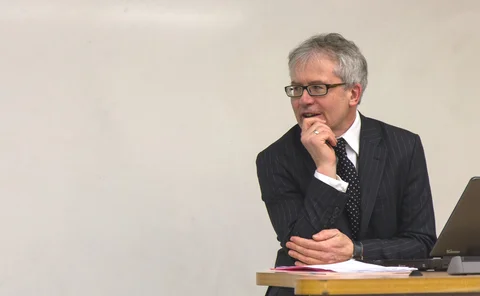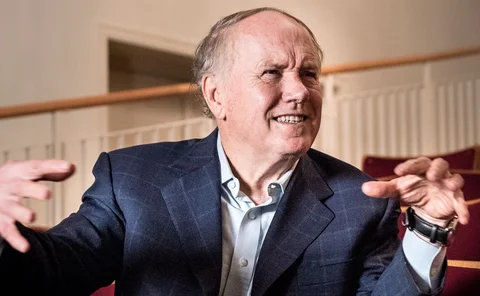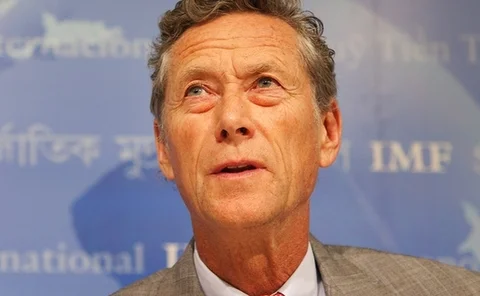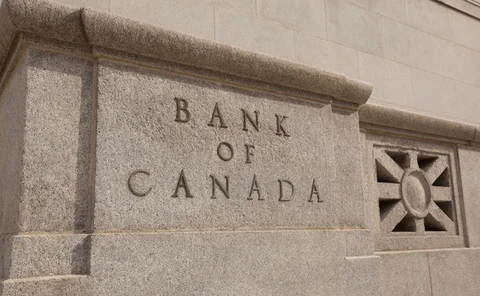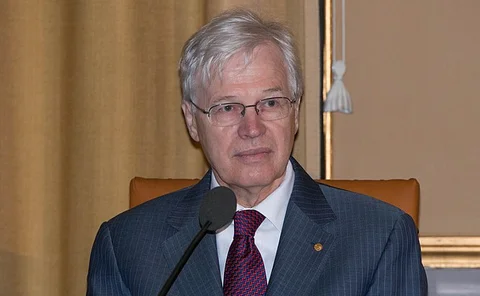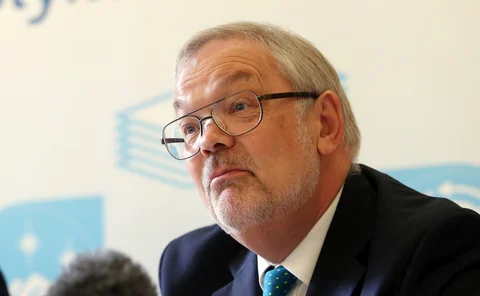Macroeconomics
Low productivity might not be weighing on real rates – research
Long-run correlations imply there is little reason to believe low productivity is associated with low rates, Cleveland Fed economist finds
Venezuelan crisis deepens; rating agencies declare default
Russia agrees to restructure $3.15 billion to facilitate repayments to creditors
BIS paper studies how weak banks beget zombie firms
Weak banks have a tendency to misallocate capital, authors find, though the effect is only important in the long run, in contrast to earlier studies
AI adoption lag could explain productivity shortfall – research
Erik Brynjolfsson, Daniel Rock and Chad Syverson argue the productivity slowdown is not as surprising as it may seem, and there are reasons to be hopeful
Korea suffering from ‘missing inflation’ – deputy governor
Core inflation is still in the mid-1% range despite economic improvement
Market structure affects monetary neutrality – paper
Minneapolis Fed research finds oligopoly undermines the neutrality of money, amplifying the real impact of monetary shocks
Xi faces macroeconomic dilemma after China’s party congress
The Chinese premier will have to work hard to avoid a 'Minsky moment', says Hui Feng
Low inflation partly down to luck – CEPR report
David Miles and co-authors argue advanced economies’ luck on inflation could run out; recommend central banks prepare
BoE paper studies interest rates across eight centuries
In July 2016, the global risk-free rate hit its lowest level since at least 1273, according to a new extra-long-term dataset
Interview: Edward Prescott
The Nobel Prize-winner speaks to Daniel Hinge about time inconsistency and real business cycle theory, and explains why there is no ‘productivity puzzle’
Communication technology helps explain productivity puzzle – Fed paper
Properly accounting for ICT services produces “very large” boost to US labour productivity figures, authors say
SBP notes caveats to decade-high growth
Expansion of Pakistan’s economy continued in fiscal 2017, although the central bank is concerned about a widening current account deficit
OECD urges UK to maintain ‘close ties’ with EU
Latest assessment of UK economy warns of damaging impact of Brexit vote; Ángel Gurría says close future relationship “absolutely key”
Blanchard and Summers call for rethink of stabilisation policy
Both economists question consensus on fiscal prudence and advocate stricter financial regulation
Bank of Canada paper studies capital control motivations
Researcher designs policy rule to study whether capital controls are imposed with “mercantilist” or “macro-prudential” motivations
IMF: global recovery is broad but incomplete
Fund ups its growth forecasts but says many are missing out; Maurice Obstfeld urges policymakers to take action while “times are good”
Neural network can beat conventional forecasts – Kansas City Fed research
Deep learning model outperforms Survey of Professional Forecasters at all horizons
Fed paper calls for rethink of conditions for setting capital controls
Policymakers should also consider how external shocks affect the borrowing capacity of the country, researchers say
Big banks’ share prices more sensitive to rate moves – paper
Lower capital ratios diminish exposure to changes in the yield curve, says research
Opaque money markets work well, Nobel laureate says
Bengt Holmström says policymakers should not try to make money markets more transparent
National Bank of Denmark sees "major challenges" for Greenland’s economy
Greenland is experiencing an economic boom, but needs to diversify its economy; central bank warns political independence may be a mistake
Goodhart and Pradhan: demographics will reverse ‘multi-decade’ trends
Ageing population is likely to put upward pressure on real interest rates and inflation, and push down inequality, economists say
UK economy vulnerable to consumption-led recession
Fragile consumer spending could take a toll on growth, former BoE officials warn, leaving the central bank with a tough job ahead
Flexible working may shift Nairu, ECB’s Mersch warns
Technology may increase insecurity and weaken collective bargaining, says senior ECB figure







